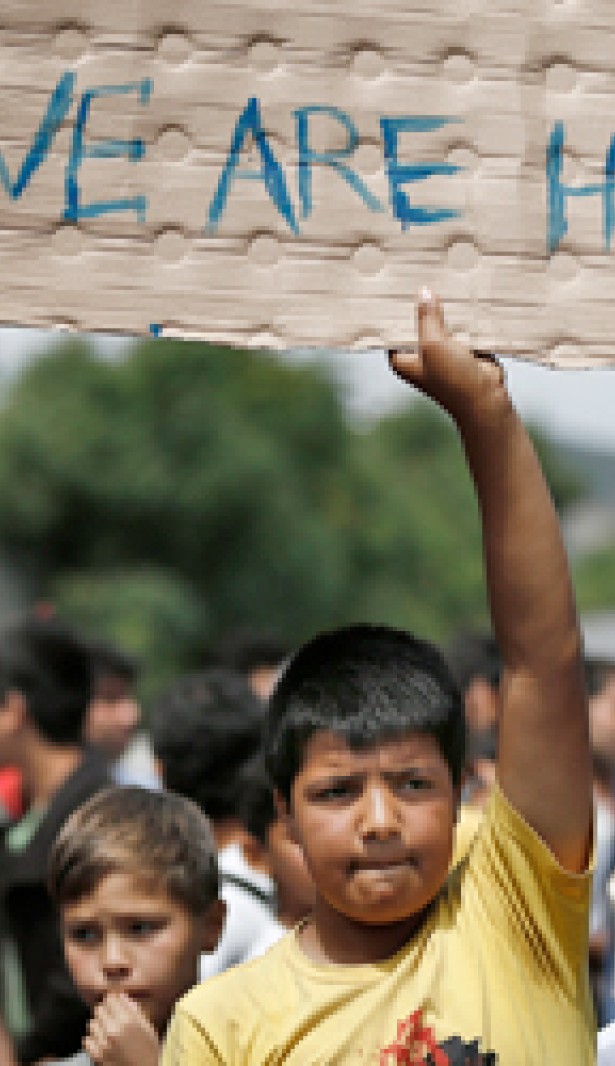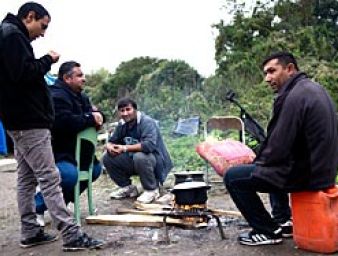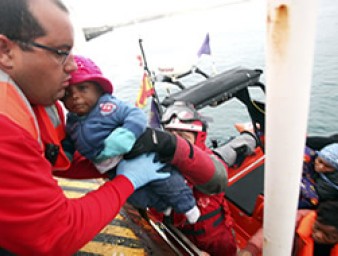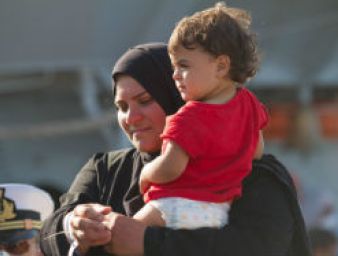Protecting the human rights of migrants at Europe's borders
01 November 2017
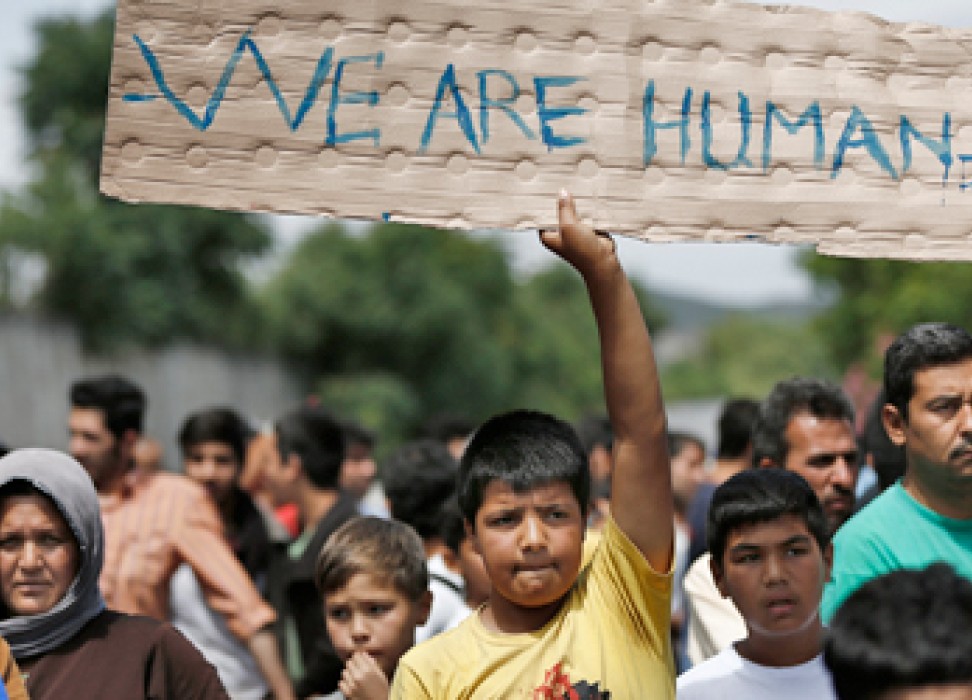
An abandoned train platform in the Greek village of Idomeni was his family’s new home for the time being, said one man who had travelled with a dozen other families from Kunduz, Afghanistan. They had arrived in Greece after a five-month journey through Pakistan, Iran and Turkey, and were now camped in tents near the border with the former Yugoslav Republic of Macedonia, which had closed its gates to new arrivals. After fleeing insecurity in Afghanistan, he said, they were now living in overcrowded conditions, with not enough food and little prospect of jobs or the chance to join relatives in other parts of Europe.
Since 2015, thousands of migrants have arrived on the shores of Italy and Greece after surviving treacherous journeys on makeshift boats across the Mediterranean Sea from Turkey and North Africa. Many have travelled across the Balkan land route through the former Yugoslav Republic of Macedonia, Serbia, Croatia, Hungary and Austria. By the end of 2016, more than one million migrants had arrived in Europe.
Some States have erected fences and closed borders in response to the newcomers, and many have tightened restrictions on the movement of migrants amid the increasingly xenophobic rhetoric of political leaders and public hostility towards migrants. With concerns growing over rights violations confronting migrants across Europe, the UN High Commissioner for Human Rights dispatched monitoring teams to key entry and transit locations throughout 2016 to examine the human rights challenges and protection gaps faced by migrants.
In a new report documenting the findings of the human rights monitoring missions to border locations in Bulgaria, France, Greece, Italy and the former Yugoslav Republic of Macedonia, the UN Human Rights Office calls on European States to address urgently the need to protect the human rights of migrants.
“States are too often relying on an emergency and security-focused approach to migration governance,” the report states. “Restrictive laws and policies and the increased use of detention practices, with limited procedural safeguards, have far-reaching impacts on migrants’ safety, health and dignity.”
The monitoring teams found the majority of migrants in border areas living in precarious conditions, with limited access to legal assistance, medical care, education and other basic services. Interviews with hundreds of migrants in the various border locations indicated that most of them lacked information about their rights in relation to accessing services, family reunification assistance and asylum procedures. The teams also observed a lack of adequate measures in place to identify and protect persons with disabilities and victims of torture and sexual violence.
“The situations migrants face upon arrival and in transit exacerbate the traumatic experiences many faced at home and during their harrowing journeys to Europe, “ said Pia Oberoi, Advisor on Migration for the UN Human Rights Office. “With the vast majority of migrants in such vulnerable situations, robust human rights protection responses are urgently needed.”
Unaccompanied Children
The situation of unaccompanied children was particularly concerning, Oberoi said, with a general lack of comprehensive and effective protection systems for migrant children. The monitoring teams found that in several locations, reception facilities for new arrivals were being used as detention centres where migrants, including unaccompanied minors and families with children, were being held.
Many of the children interviewed by the mission teams had spent weeks in detention and lacked information regarding why they were being detained, and when or how they would be reunited with family members in other locations. Pointing to the locked gates and rolls of barbed wire above their heads, the children asked, ‘Why are we in jail?’
“International human rights law is very clear that children, regardless of whether they are unaccompanied or with a parent, should never be detained for immigration purposes,” said Oberoi. “The care of children must be based on what is in the best interest of each child’s development and well-being. This can never be provided in an immigration detention environment.”
The mission teams met with EU officials, national and local government authorities, national human rights institutions, and the staff of migrant reception facilities, camps and shelters, to discuss the need to prioritize and strengthen protection of migrants’ rights.
In a recent speech to UN Member States, UN High Commissioner for Human Rights Zeid Ra’ad Al Hussein emphasized the need for human rights-based approaches to migration at national, regional and international levels. He urged States to support the ongoing international discussions for a Global Compact on Safe, Orderly and Regular Migration.
“The UN Human Rights Office is developing guidelines and a compendium of good practices to help States and other stakeholders respond more effectively and appropriately to the needs of vulnerable people on the move who are not able to benefit from refugee status but nonetheless need protection of their human rights,” Zeid said.
The UN Human Rights Office has played a leading role in supporting the historic negotiation of a global compact on migration and will continue its dialogue with Governments, national human rights institutions and civil society partners to ensure adherence to international human rights standards to uphold and protect the rights of all migrants across Europe.
1 November 2017
